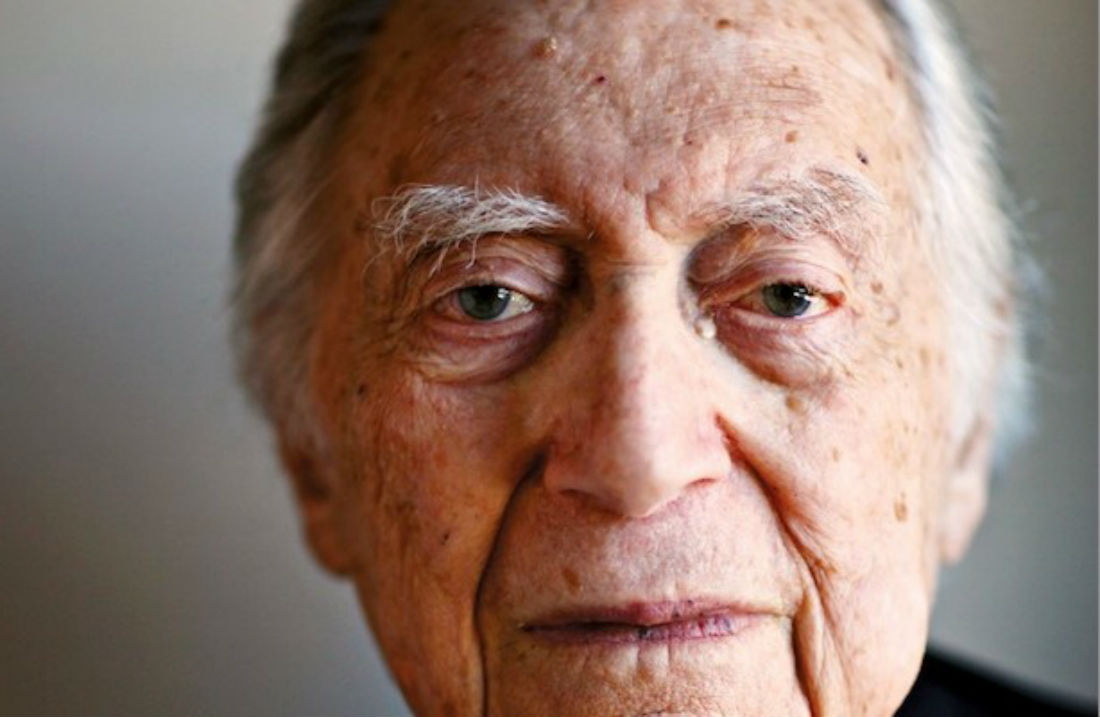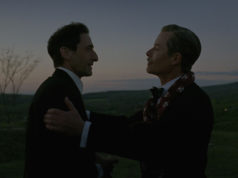The news on Wednesday of Stanley Kauffmann’s death at age 97 sent me scurrying back to his film criticism. Having previously reviewed theater and books, Kauffmann fell into his job reviewing films for The New Republic in 1958 and occupied that perch to the end of his life. His weekly output had tapered off, but he remained active until almost the end — his last piece was filed only two months ago. He was one of the last links to an era when the first great generation of film critics emerged. (The last remaining link now is John Simon, who is a mere 88 years old, still writing regularly, and stands as living proof that sometimes the meanest of us live long lives.) Kauffmann never became as famous as some of his colleagues; he didn’t have Andrew Sarris’ propensity for big-picture thinking, nor did he have Pauline Kael’s colorful prose style and fine-tuned awareness of the cultural moment. Yet he was a great critic all the same, and over at the New Republic’s website, you can read a number of tributes from estimable critics, as well as some of Kauffmann’s best work.
Before he was a film critic, Kauffmann had worked as an actor and director for New York’s Washington Square Players, as well as teaching acting at Yale. His experiences in that sphere gave him a special awareness of actors’ contributions when he was writing up a film. He was unabashed with being enraptured with some actors; his review of the 1958 comedy The Reluctant Debutante is worth reading just for his evocation of the comic genius of Kay Kendall, the red-haired British actress who would pass away at age 32 the following year. He had witnessed the seismic impact of Marlon Brando on American acting as it was happening. Here is his description of the great actor in A Streetcar Named Desire: “Sculptural yet lithe, he irrupts into the film like history taking its revenge. The voice itself is part of that revenge: instead of the round, resolute voice we expect in good actors, this man’s voice corkscrews in, incises sideways, then turns into full-bladed flashes of steel.”
The only interruption in his 55-year stint at The New Republic was a brief interlude as the theater critic at The New York Times in 1966, which promptly fired him for being too “ponderous and professorial,” according to Gay Talese’s account of the goings-on at the Paper of Record. True, Kauffmann’s writing could turn stuffy on occasion — he insisted on using the word “film,” and in response to Kael’s equally insistent use of the less formal word “movie,” he grumpily wondered if we should start calling books “printies.” (Keep in mind, this was at a time when cinema was still struggling to be taken seriously as an art form.) Like any critic worth his salt, he got it spectacularly wrong sometimes. He said The Silence of the Lambs would have been improved if Rebecca de Mornay had been cast as the heroine instead of Jodie Foster, and he dismissed The Godfather by comparing it to a long-forgotten Martin Ritt 1968 mob drama: “In no way is it any better than The Brotherhood on the same subject.”
Even so, the elegance, dignity, and clarity of his prose was a model for aspiring film writers, and he could be marvelously entertaining. On Norman Mailer’s Wild 90, made at the height of the novelist’s fame: “I cannot say that Mailer was drunk the whole time he was on camera. I do not know it for fact; perhaps it is only colored water that he keeps swilling. I can only hope that he was drunk.” Too, his address on film depictions of the Holocaust in the wake of Schindler’s List is a masterpiece of thinking. No wonder that the late Roger Ebert, who came a generation after him, hailed Kauffmann as one of the few critics who could make him reconsider his entire thinking on a given film. Kauffmann’s enthusiasm for his subject never dimmed, either, as you can feel his joy in discovering Museum Hours in his last piece. For anyone who cares about film, Kauffmann’s passing is an occasion to stop and take note.













His review of Fellini’s 8 1/2, in 1963 was one of the few that “got it” and he wrote marvelously of the films pleasures. Long live Stanley.
http://www.newrepublic.com/article/115107/jolly-good-fellini
Kristian:
This is a neat eulogy by you. Thanks. But I think the two exceptions you make in Stanley’s judgment are not well taken. I for one do not think that Jodie Foster is a good actress myself. And I also think that The Godfather is really overrated. I don’t even think its Coppola’s best film. Like every critic, Kaufmann did make some errors. I think he was wrong to dismiss The Long Good Friday and Get Carter. And I don’t like one of his all time favorites, How I Won the War. But when you compare his track record to say Simon,or even worse, Kael, it is quite good.